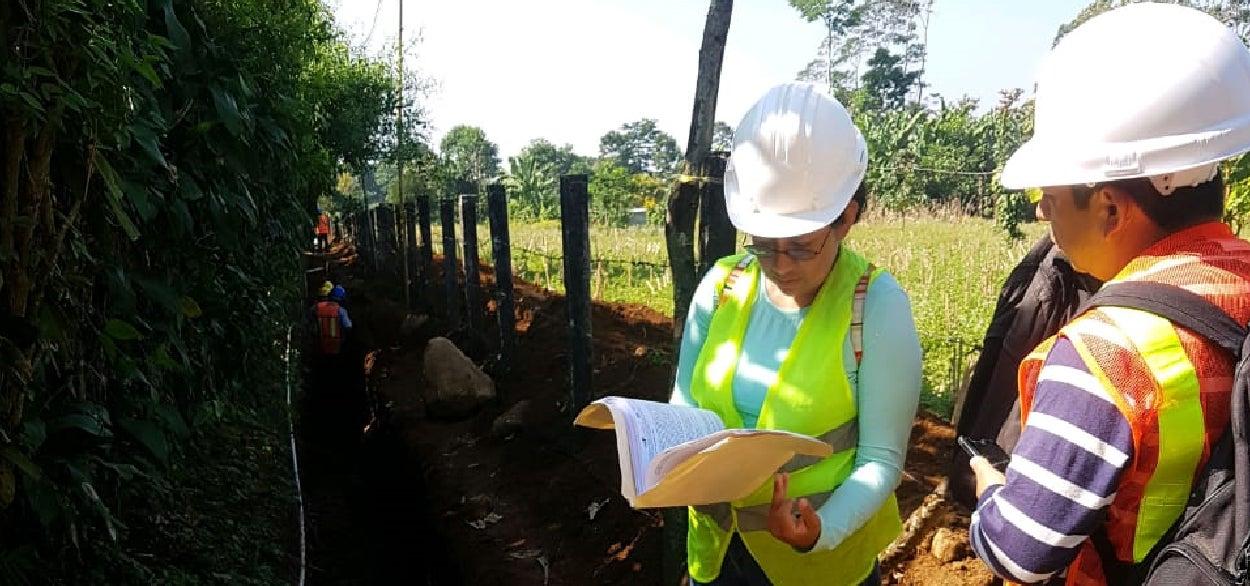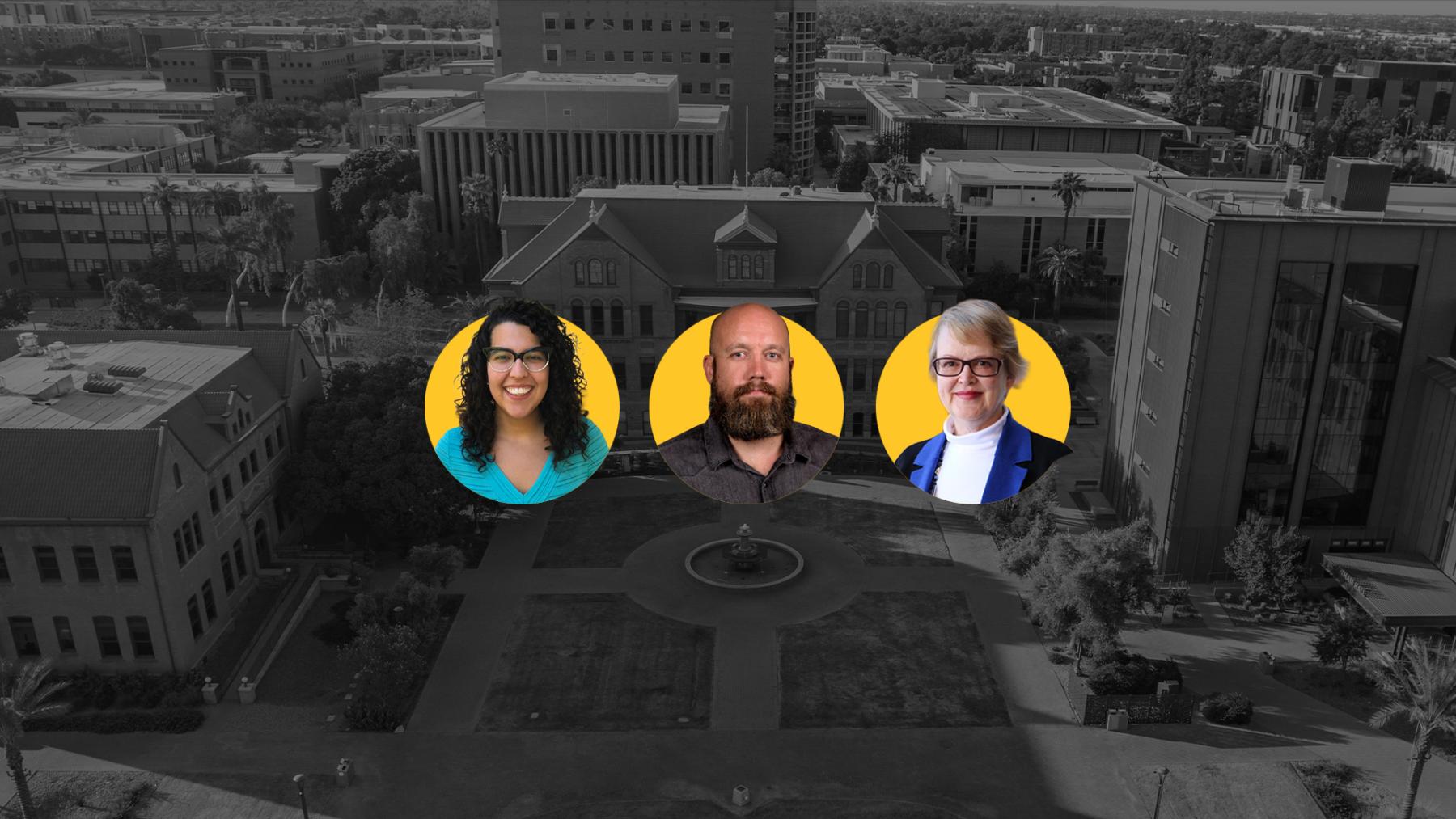
Water is a human rights issue for ASU PhD student Maria Maldonado
Maria Maldonado decided to pursue a career in engineering when she was 17 years old.
In her home country of Guatemala, this was out of the ordinary for a woman. But, from a young age, it was something her father always encouraged.
“My father wanted me and my sister to be more than home makers,” Maldonado said. “He bought us STEM toys, robots and trucks, and encouraged me to study math. He would even join me when I was studying.”
Maldonado, often the only woman in her classes, studied hard to become a civil engineer at the Universidad de San Carlos de Guatemala.
When she graduated, she entered the construction field and began her career building houses for people living in rural and impoverished areas.
While she was working on these housing projects, she made two decisions.
First, the poverty she witnessed in the rural communities, compared to in the city where she was born, made her rethink her goals.
“I realized that I wanted to do work that helped people live better,” she said.
Second, she decided she wanted to go back to school. And this time, she wanted to study water.
“In these rural areas, which is where a lot of our water comes from, I saw how we were contaminating the water and how this caused problems, not just in rural communities, but in the city as well. It affected everyone,” Maldonando explained. “This is why I became interested in water and all the interrelated activities. It is a human rights issue.”
Hydrosystems Engineering
Maldonado understands how important water is.
“Water is in everything. It is related to health, agriculture, economy and production,” she said. “If you don’t have clean water, you don’t have anything.”
Understanding the importance of water, and having observed the mismanagement of the resource in her country, Maria decided to move to Spain to study water quality at the Universidad de Granada.
Afterwards, she returned to Guatemala to begin working in the water management field. But, she knew there was still more to learn.
She continued her education at Centro Universitario de Occidente in Guatemala, but soon decided she wanted a different experince.
So, she applied and was awarded a Fulbright scholarship to put towards a PhD in Hydrosystems Engineering at Arizona State University.
Maria chose ASU for three reasons.
For one, she decided to study in the U.S. because “this country has the top of the top quality of education.”
Arizona’s arid region is also very similar to many regions in Guatemala.
“Most people think Central America doesn’t have arid regions which is not true. It is advertised as really green land,” Maldonado said. “But, the arid regions are growing really fast, and we don’t have a good collection of environmental resources. Arizona is the perfect place to learn to manage that.”
Finally, the cultural diversity in Arizona led Maldonado to choose ASU.
“Guatemala has 21 different cultures and the diversity here is very similar,” she explained. “And learning to work with other cultures is very beneficial.”
TEAM Grant Program
Maldonado is getting this cross-cultural experience as part of the U.S.-Mexico Training in Environment, Agriculture and Management (TEAM) program.
The TEAM program is a collaborative project between ASU and the Instituto Tecnológico de Sonora (ITSON). The purpose of the project is to examine and compare agricultural practices, environmental assessments and sustainable management tools utilized in the Maricopa and Pinal counties in central Arizona and the Yaqui Valley in southern Sonora, Mexico.
TEAM is currently in the pilot stages of the program, which will consist of two field visits to central Arizona and southern Sonora and a three-semester virtual class, in which Maldonado is currently enrolled.
“This is a really great opportunity because it is a binational program and it will have a huge impact on the principal actors in water management,” Maldonado said. “Also it involves many women, who are underrepresented in STEM.”
One of these women is Dr. Rebecca Logsdon Muenich, whom Maldonado also works with at the Muenich Lab Group at ASU.
“Muenich's work is great and she has a lot of knowledge on the topic,” Maldonado said. “To be led by people like her who really know the topic, who are experts and who have a lot of knowledge, I will learn a lot.”
Maria said Dr. Muenich inspires her to believe that “we as women can be principal actors in this field.”
Aside from working with other women in the field, Maldonado said she is most excited to learn cross-cultural techniques for water management.
She is already looking ahead to how she can take what she learns as part of TEAM back home to Guatemala.
“Hopefully I will learn much about water management and then be able to replicate that in my own country,” Maldonado said. “We don’t have the same technology but I think with international aid we can implement some of the same techniques.”
Maria expects to complete her PhD then return to Guatemala and become a leader in the field of water management.
“We have a lot of water (in Guatemala) but we don’t know how to manage it. We have a lack of knowledge and are making a lot of mistakes,” she said. “I came to learn how water is related to culture, sustainability and the economy and how to help protect the wellbeing of people.”
More stories from the Graduate Insider

Graduate education is an adventure
About eighteen months ago, I set out on a journey walking the islands of the Dodecanese during a sailing trip in Türkiye and Greece with several friends. Along the way, I found winding paths, timeless villages and breathtaking views of sea and sky. That experience got me thinking about how adventure shows up in other parts of life, especially in learning.

Promoting resilience and well-being in Ghana — and across the globe

From practice to presentation: How to deliver a winning faculty job talk
Giving a job talk can feel like the most high-stakes presentation of your academic job search. It’s not just a research seminar—it’s your opportunity to demonstrate vision, communication skills, and fit within a department. In a recent Lunch and Learn, faculty members Associate Professor in School of International Letters and Cultures, Anita Huizar-Hernandez, Professor in School of Life Sciences Jeffrey Jensen, and Professor in Department of Physics Patricia Rankin shared concrete strategies to help graduate students and postdocs succeed as future faculty candidates.